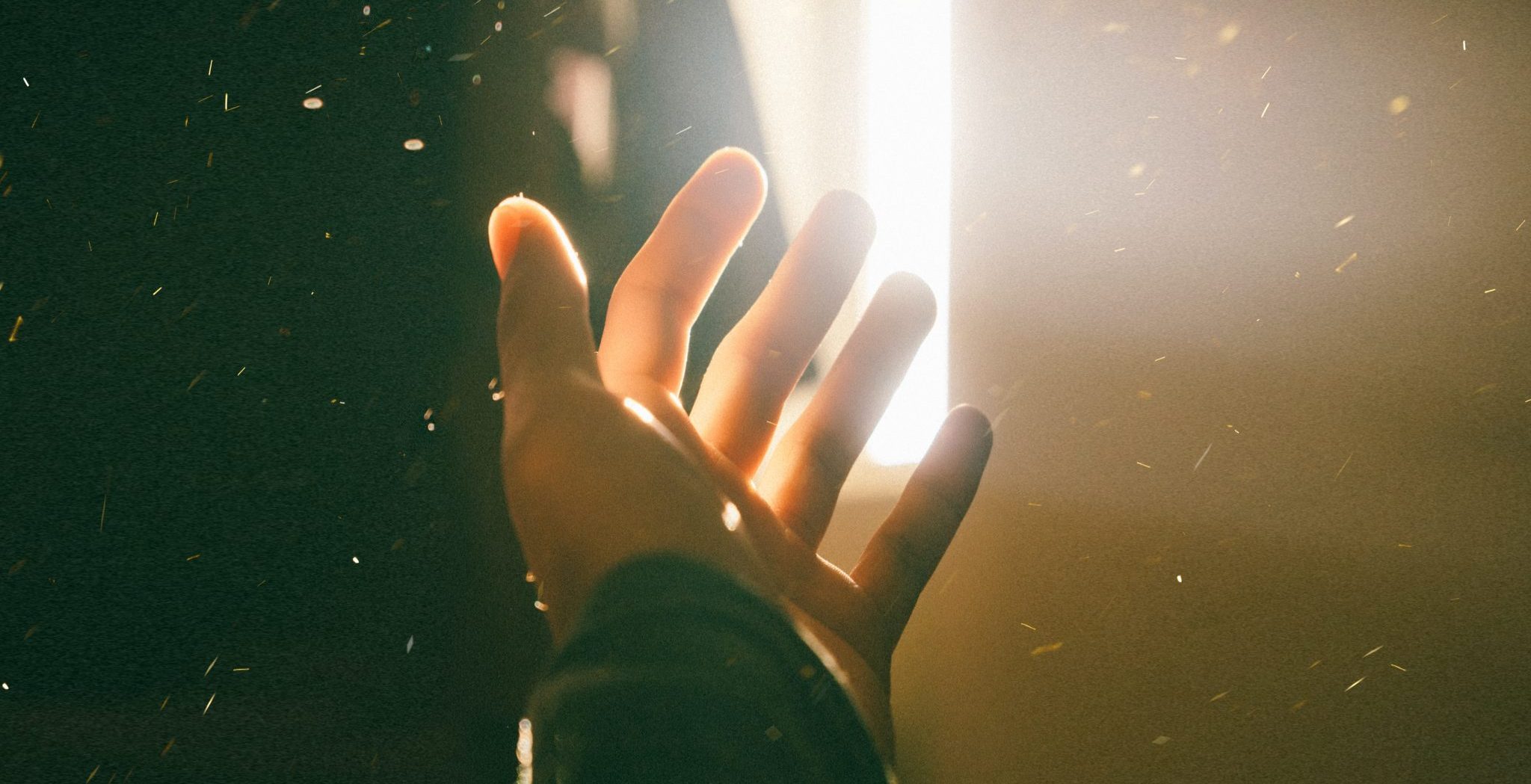

In the lead up to the 20th anniversary of the August 5, 2003 hotel bombing in Jakarta, our thoughts and prayers go to all who were affected by the tragic event.
August 5, 2003. Commercial kitchen consultant Carol Chia and three colleagues were having lunch in the coffeehouse at JW Marriott Hotel in Jakarta.
Normally at the end of work trips, they would head straight to the airport for a flight back to Singapore.
“But it was the first time we had half an hour to spare. So we decided to grab a quick bite at the hotel,” Carol, now 65, told Stories of Hope.

Carol in a photo before the bomb blast that changed her life. All photos courtesy of Carol Chia unless otherwise stated.
About 15 minutes into their meal, an explosion ripped through the coffeehouse.
A pure, white light blotted out everything.
TRIGGER WARNING: The following contains graphic descriptions and images that may be distressing to some.
“I felt like I was in the stillness of a vacuum with no noise,” said Carol, who thought a gas pipe had exploded.
She only found out later that a suicide bomber had detonated a car bomb in the driveway of the luxury hotel. It killed 13 people and injured 150, many seriously. The coffeeshop that Carol was in bore the brunt of the blast.

The bomb blast damaged five floors of the hotel and shattered windows as high as 30 floors up. Screenshot from video from AP Archive.
Carol’s face, hands, arm and hip were burnt in the explosion and cut by flying glass shards.
“But at that time, I didn’t feel any fear or any burning heat,” she said.
“At that time, I didn’t feel any fear or any burning heat.”
“I felt safe and calm, like I was in the palm of God’s hand.”
She remained comfortably seated at the table with her hand on her cheek.
“Then I heard a voice say, ‘Carol, get out.’”
The walls and windows of the coffeeshop were blown in. She could have run out that way.
“But the voice said ‘this way’ – and directed me out of the coffeeshop, towards the lobby,” she recalled.
Part way out, she took a few steps back to get her laptop and credit cards, and to check on her colleagues.
“Then the voice asked, ‘Can you help them? Go out and get help.'”
Just then, the sprinklers came on, drenching Carol and everyone else.
“The voice told me, ‘Walk, don’t run.’”
“People were yelling, crying and running, and there was the sound of broken glass tinkling.
“The voice told me, ‘Walk, don’t run.’”
“The people running looked at me walking. I looked at them. And then we all walked.”
Carol knew that it was the voice of God that guided her and the others to safety. It prevented mass panic and further injuries.
“It was the first time I had heard God’s voice. It was like hearing thoughts, but I knew they were not my thoughts,” she said.
“God’s voice that day was warm, assuring and gentle.”
Carol and other survivors stumbled out from the charred debris and thick, black billowing smoke into the daylight.
She heard people in the crowd say, “It was a bomb! Look at the crater.”
(The AP video below shows the aftermath of the blast that Carol escaped from.)
The first of many “angels” Carol met “stopped passing cars, pushed us inside, and asked the drivers to take us to the nearest hospital”.
She turned the rides down, saying that she was waiting for her colleagues, until people told her that she was hurt.
At the hospital, Carol waited in her wet clothes while doctors attended to more urgent cases. When they finally treated her, they removed glass fragments from her face and sewed up her torn left cheek.

Carol suffered horrific burns to her hands in the blast. Screenshot from Channel U documentary, Sense of Being, that featured Carol’s rehabilitation and recovery in Singapore.
“I asked people to contact the Singapore Embassy,” she recalled.
“My father’s heart had dropped to the floor when he heard about the blast.”
“I couldn’t speak Bahasa and no one could understand me, until I met one angel – a young man – who did. He bent over me and asked me my name, and said that he would come back and look for me.”
That evening, she met another angel – her brother’s contact in Jakarta – who found her in the hospital. He put her on a cell phone call with her family back in Singapore.
“My father’s heart had dropped to the floor when he heard about the blast.
“I was able to assure my family that I was alive, I could speak and that I was coming home.”
“My sister shrieked when she saw me because she thought I had died.”
The next day, Carol, her colleagues, and a few other burn victims from the blast were airlifted to Singapore.
From Seletar Airport, ambulances whisked them to the Burns Centre at Singapore General Hospital. Carol’s ambulance was the last to arrive.
“Realising that there were news photographers outside, I asked the attending doctor, ‘Could you put a towel over my face?’
“My sister shrieked when she saw me because she thought I had died.”
Carol suffered burns to 14% of her body.
She believes that her cotton and linen clothes protected most of her body; synthetic fabrics may have melted and fused to her skin.

News clipping from The Straits Times on the painful skin graft surgeries that Carol (pictured), her colleagues, and fellow survivors underwent at the regional Burns Centre at Singapore General Hospital.
Surgeons cut off burnt skin and grafted on healthy skin from her thighs. They also grafted a nerve from her ankle onto her face.
Carol was emerging from the fog of anaesthesia when a doctor showed her a huge shard of glass – “like a 25-carat diamond”. Surgeons had found it in the left side of her face.

The diamond-like glass shard that Singapore surgeons removed from Carol’s face. “I keep it as a memory to remind me of how blessed I am,” she said. “A few millimetres anywhere else, and I could have been brain dead, lost my eyesight or speech.”
“A few millimetres anywhere else, and I could have been brain dead, lost my eyesight or speech.
“All it did was it broke my jaw, broke one tooth at the back, cut four nerves,” she said in an interview with Channel U during her recovery.
Visitors weren’t initially allowed in the patients’ rooms to prevent their wounds from getting infected.
From her hospital bed, Carol saw the agony on the faces of her beloved parents and family through a glass that separated them.
“I felt responsible for the big trauma my parents were going through.”
“I prayed the Lord would look after my family just as He looked after me,” she said.
It made her think.
“Before the blast, I would travel without a care or responsibility.
“Now, I felt responsible for the big trauma my parents were going through. So I was determined to deal with it by getting on with things.
“It was a case of putting one foot in front of the other, no matter what.”
She took pains to follow medical instructions to help her body heal.

“If I was afraid of how I looked, I would have been stuck at home all the time. It was not how I wanted to live my life,” said Carol of her injuries. Screenshot from Channel U documentary.
Instead of wallowing in self-pity, Carol looked for joy in things she would have normally taken for granted.
These included the first shower she was allowed to take a few days after the blast (with her bandages wrapped up in plastic) – and the fruit gums she looked forward to buying from the hospital pharmacy when she went for physiotherapy and occupational therapy sessions a few times a week.
(Read here on how Carol subsequently found an infinitely greater joy.)
Carol was “deeply moved” by the angels that God sent to help her heal physically, emotionally and spiritually from the traumatic event. They included strangers whose gentleness and kindness encouraged her.
The kindness of nurses, surgeons and staff at the hospital who put her on the road to recovery showed her “the meaning of care”.
The hospital saw also to the well-being of her parents and family.
“It was as if the burn support survivor was saying, ‘Take my hand. You can be here, too.’”
Burn survivors from the Burn Support Group were living proof that her wounds would eventually heal. At that time, the grafted skin on her hands was inelastic and she needed physiotherapy to stretch the taut skin in order to gain full mobility.
“One burn support survivor let me touch his grafted skin. It was so soft,” she said in a video interview with Channel 8 during her rehabilitation.
“It was as if he were saying, ‘Take my hand. You can be here, too.’”
Carol, who described herself as “someone who would enjoy living on a deserted island”, also had to learn to let people like family, friends, pastors, counsellors walk with her.

During Carol’s rehabilitation, friends from her MGS (Methodist Girls’ School) days taught her to knit and crochet, and took her shopping. Photo taken three years before the blast; Carol is standing on the left.

Old friends who came back into Carol’s life after the blast included Pre-U schoolmate, Pang Seng Hock, who had a crush on her 30 years earlier. They got married seven months after reconnecting. Read their love story here.
Moved by the love of Jesus shown by the people around her, Carol started to attend church regularly again. She wanted to find out what God had planned for her life.
“I knew He had a great plan for me, for He had started me on a marvellous new journey,” she said in a 2004 interview with Tidings, the magazine of Wesley Methodist Church.
Surviving the blast and going through rehabilitation was an emotional time for Carol, who also felt “anger, frustration, shame and physical discomfort”.
A week after the blast, she was asked to sign some forms.
“My hands were damaged and I couldn’t hold a pen … It was the first time I really cried.”
“My hands were damaged and I couldn’t hold a pen. I remember my frustration and fear. I felt self-pity, ashamed and stupid.”
(While she has regained full use of her hands, she still struggles with micro movements like peeling open plastic bags at the supermarket.)
“It was the first time I really cried,” said Carol, who previously “never saw the need to cry and never allowed anyone see me cry”.
Before the blast, she never needed much time to get ready to leave home. After the blast, she spent two hours a day massaging moisturiser onto her grafted skin and putting on pressure garments to prevent keloids from forming.
“It was a great inconvenience,” she said.
“I was very proud, and refused help from people at home.”

Carol wore skin-toned lycra pressure garments like a face mask, gloves and arm tubes to reduce the formation of keloids. Seamstresses at the Occupational Therapy Department at Singapore General Hospital custom-made them for burn survivors like her. Photo from bsgsingapore.blogspot.com.
A month or so after Carol was discharged from hospital, her lengthy routine made her late for a big family lunch with her parents.
She got angry and upset.
“I started crying and shouted at God, ‘Why Lord, why me?’
“I asked God why all this was happening to me.”
The same voice of God that guided her out of the rubble spoke again to her – this time, through a Bible that happened to be open.
“The words ‘to build … to encourage’ (1 Thessalonians 5:11) jumped out at me, even though I was as blind as a bat without my glasses.
(Read here about how the blast humbled the prideful commercial kitchen consultant who is now a volunteer counsellor.)
Looking back, Carol considers herself blessed to have felt the presence of God guide her through the most traumatic time of her life – and beyond.
She is thankful that she did not suffer from post-traumatic stress disorder (PTSD).
“The closest I came to panic was when I saw security staff checking cars for hidden explosives,” she said.

Faint scars on Carol’s hands and left cheek are reminders of the hotel bomb blast in 2003 – and the good that also came out of the horrific event. Photo by Gemma Koh.
“What I went through in Jakarta was an encounter with the Lord.
“I saw the Lord, I saw His light. He sent angels and I heard His voice.
“Getting those instructions from Him when I didn’t know what to do meant that I wasn’t alone.
“What He did for me was just awesome.”
Read Part 1 and Part 3 of Carol’s story here:
Miraculously surviving a bomb blast humbled this once prideful woman
MORE STORIES ON SURVIVORS OF CLOSE CALLS WITH DEATH:
He almost died 9 times before he turned 15: How did he survive against all odds?
This dim sum chef from China cheated death four times. What saved him?










